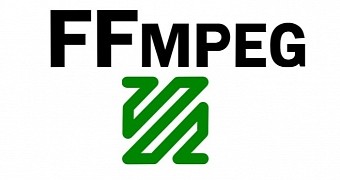Today, April 28, 2016, the development team behind the popular FFmpeg open-source and cross-platform multimedia framework has released the second maintenance release in the stable FFmpeg 3.0 "Einstein" series.
FFmpeg 3.0 was a massive release announced in mid-February, which brought in numerous existing changes, including support for decoding and encoding Common Encryption (CENC) MP4 files, support for decoding DXV streams, as well as support for decoding Screenpresso SPV1 streams.
Furthermore, FFMpeg 3.0, which has been dubbed Einstein, also introduced features like a chromaprint fingerprinting muxer, a Cineform HD decoder, a wve demuxer, XMA1 and XMA2 decoders, an ADPCM PSX decoder, an IVR demuxer, an ADPCM AICA decoder, an SDX2 DPCM decoder, and a VAAPI VP9 hwaccel.
Today's second point release of FFmpeg 3.0 "Einstein" adds the usual updated components, among which we can mention libavutil 55.17.103, libavcodec 57.24.102, libavformat 57.25.100, libavdevice 57.0.101, libavfilter 6.31.100, libavresample 3.0.0, libswscale 4.0.100, libswresample 2.0.101, and libpostproc 54.0.100.
As usual, the FFmpeg developers note that FFmpeg 3.0.2 is now the latest stable and most advanced FFmpeg release from the 3.0 release branch, which was cut from the Git master repository on February 14, 2016.
Users are recommended to update their GNU/Linux operating system to FFmpeg 3.0.2 as soon as possible to avoid system issues and crashes. You can download the FFmpeg 3.0.1 sources right now from our website and compile the software yourself or wait for the new version to arrive in the main software repos of your OS.

 14 DAY TRIAL //
14 DAY TRIAL //